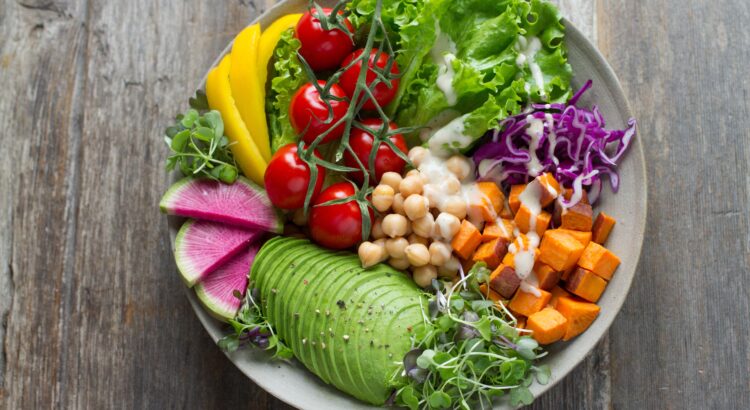Eat Well Group to Acquire Majority Stake in Plant-Based Baby Food Company, Amara
Eat Well Investment Group Inc. announces its agreement to definitive terms to acquire a preferred equity position in PataFoods, Inc. dba Amara Organic Foods (“Amara”), a fast-growing North American plant-based baby food brand, with an option to acquire an additional 29% of the shares of Amara at a USD$100,000,000 valuation. Pursuant to the agreement signed October 27, 2021, closing is expected to occur on or about November 2, 2021, subject to the satisfaction of customary closing conditions.

Amara represents an integral component of Eat Well Group's strategic business plan, bolstering the Company's complete vertical integration strategy by focusing on top-tier and proven CPG products that consumers love. Amara's focus on improving infant nutrition through innovative organic products will help establish Eat Well Group as a leader in plant-based CPG products and offerings. Consumer decisions continue to drive disruption in the legacy dairy industry, and Jessica Sturzenegger and her team at Amara are at the forefront. Amara's leadership team are among the very best of purpose-driven pioneers who bring together plant-based innovation, brand passion, and operating drive,” stated, Marc Aneed, President, Eat Well Group. “Amara has proven an impressive ability to scale through retail distribution and eCommerce excellence, and the funding and industry expertise provided by the Eat Well Group will help accelerate Amara's growth as we head into calendar 2022.”
Amara's focus on improving infant nutrition through innovative organic products will help establish Eat Well Group as a leader in plant-based CPG products and offerings
About Amara
 Amara is a food technology company that uses science and proprietary IP that locks in taste and texture to make healthy, organic, non-GMO, plant-based, convenient baby and children’s food possible for modern-day families. From baby food to toddler food and beyond, Amara is driven by the belief that setting kids on the right path from a young age will help them live better, feel better and think better for the rest of their lives.
Amara is a food technology company that uses science and proprietary IP that locks in taste and texture to make healthy, organic, non-GMO, plant-based, convenient baby and children’s food possible for modern-day families. From baby food to toddler food and beyond, Amara is driven by the belief that setting kids on the right path from a young age will help them live better, feel better and think better for the rest of their lives.
Amara first disrupted the baby food market in 2017, supporting the demand from parents for fresh, nutrient-rich, low-sugar baby food that was minimally processed and shelf-stable. Amara's baby food is one of the most unique product lines that can deliver the benefits of fresh, with the convenience and scale of shelf-stable. The baby blend line is designed to mix with breast milk, formula, or water for a gentle transition to starting solids.
Amara's new snack line continues to deliver on the promise of fresh tastes and texture with no added sugar or long ingredient lists. Like their major snack line, the 100% organic whole fruit and vegetable blend baby meals use the natural properties available in the fruits and vegetables, without additives and concentrated sugars.
Amara is sold throughout major North American retailers, including Whole Foods, Costco, Amazon, and Walmart Canada.
Source: Business News Wire

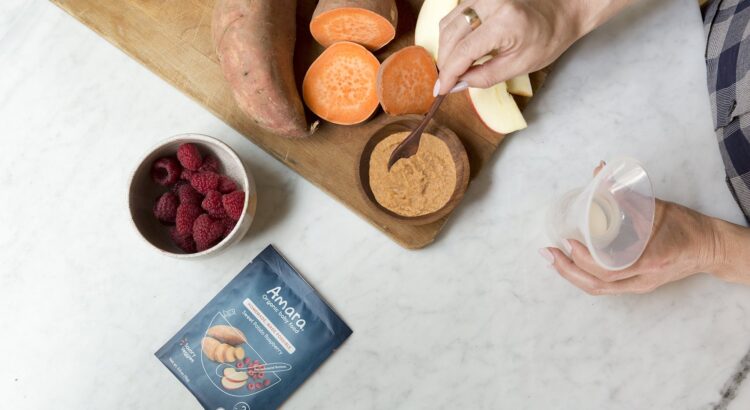
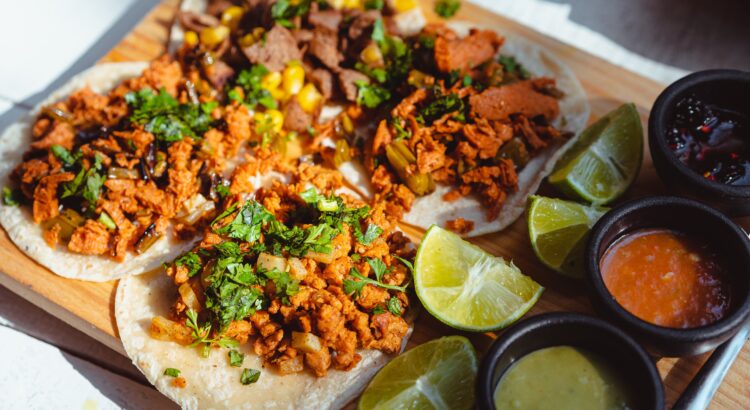


 Chef Pablo Narajo Agular was in India for a food show on NatGeo ‘Gourmet Goes Tribal’ in the year 2019. One can still watch it on the OTT platform Disney Hotstar, India. He goes on a trip to North East India discovering the tribes and their unique dishes. One of the episodes shows him visiting the largest living Buddhist monastery in the world – Tawang in Arunachal Pradesh. A region that has mixed food influences with Tibet on one side, Burma, and Myanmar on the other. Lamas from the monastery cooked for the Columbian-Brazilian chef. Thenthuk – pulled noodle soup / broth made using wheat dough, onions, tomatoes, ginger, garlic, mustard leaves seasoned with salt – an extremely simple yet robust preparation was served to him. Thenthuk and the Thukpa are widely popular in Tibet, Myanmar, Bhutan and parts of Ladakh as well. Pablo also gets to taste a unique tea made using Yak cheese and milk and a pinch of salt. The monks here are vegetarian and use local vegetables and ingredients in their food which is extremely simple in preparation, hot and ideally enriched to suit the climate and geography. One has seen recipes of Thunkpa in other parts of India that use spinach instead of mustard. It still is rich and flavourful. Other than the broth the lamas eat roti, rice, dal etc., which evidently come from the Indian influence.
Chef Pablo Narajo Agular was in India for a food show on NatGeo ‘Gourmet Goes Tribal’ in the year 2019. One can still watch it on the OTT platform Disney Hotstar, India. He goes on a trip to North East India discovering the tribes and their unique dishes. One of the episodes shows him visiting the largest living Buddhist monastery in the world – Tawang in Arunachal Pradesh. A region that has mixed food influences with Tibet on one side, Burma, and Myanmar on the other. Lamas from the monastery cooked for the Columbian-Brazilian chef. Thenthuk – pulled noodle soup / broth made using wheat dough, onions, tomatoes, ginger, garlic, mustard leaves seasoned with salt – an extremely simple yet robust preparation was served to him. Thenthuk and the Thukpa are widely popular in Tibet, Myanmar, Bhutan and parts of Ladakh as well. Pablo also gets to taste a unique tea made using Yak cheese and milk and a pinch of salt. The monks here are vegetarian and use local vegetables and ingredients in their food which is extremely simple in preparation, hot and ideally enriched to suit the climate and geography. One has seen recipes of Thunkpa in other parts of India that use spinach instead of mustard. It still is rich and flavourful. Other than the broth the lamas eat roti, rice, dal etc., which evidently come from the Indian influence. When speaking of Buddhist monastery kitchens and the dishes, one cannot help but mention nun Jeong Kwan from Chunjinam Hermitage, South Korea, who became the face of Buddhist Temple Cuisine. She was seen in the popular Netflix show ‘Chef’s Table’ and she also began to teach at the hermitage and the university in Seoul. She caught the attention of Master Chefs from across the world. In more recent times she was also featured in ‘Eat the World with Emeril Lagasse.
When speaking of Buddhist monastery kitchens and the dishes, one cannot help but mention nun Jeong Kwan from Chunjinam Hermitage, South Korea, who became the face of Buddhist Temple Cuisine. She was seen in the popular Netflix show ‘Chef’s Table’ and she also began to teach at the hermitage and the university in Seoul. She caught the attention of Master Chefs from across the world. In more recent times she was also featured in ‘Eat the World with Emeril Lagasse.
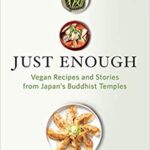


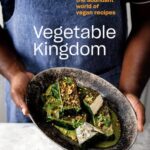

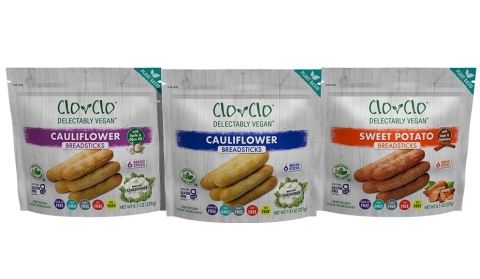
 CLO CLO’s newest portfolio addition is available in three delicious flavors: cauliflower, cauliflower with garlic & oil and a sweet potato with sugar & cinnamon. “Breadsticks are a staple in American restaurants, and now it’s even easier to bring a healthy solution into the home with CLO-CLO’s veggie dipping sticks. The perfect way to add more veggies to an appetizer, kids’ lunch or family meal,” said Chef Robert, Executive Chef, CLO-CLO Vegan Foods, LLC.
CLO CLO’s newest portfolio addition is available in three delicious flavors: cauliflower, cauliflower with garlic & oil and a sweet potato with sugar & cinnamon. “Breadsticks are a staple in American restaurants, and now it’s even easier to bring a healthy solution into the home with CLO-CLO’s veggie dipping sticks. The perfect way to add more veggies to an appetizer, kids’ lunch or family meal,” said Chef Robert, Executive Chef, CLO-CLO Vegan Foods, LLC.

 Clive’s Purely Plants, VFC, LoveSeitan, Better Nature, Mighty, Crack’d, Fable Food Co, Flax & Kale, Future Farm, FazendaFuturo, Heura Foods, Meatless Farm, Jack & Bry, LAVIE, Miami Burger Company, THIS, VBites Group, Omni Foods, Beyond Meat, Vegums, Biff’s, Dopsu Food, Les Nouveaux, Affineurs had stalls at this physical exhibition space, and they shared their experiences on their professional social media network.
Clive’s Purely Plants, VFC, LoveSeitan, Better Nature, Mighty, Crack’d, Fable Food Co, Flax & Kale, Future Farm, FazendaFuturo, Heura Foods, Meatless Farm, Jack & Bry, LAVIE, Miami Burger Company, THIS, VBites Group, Omni Foods, Beyond Meat, Vegums, Biff’s, Dopsu Food, Les Nouveaux, Affineurs had stalls at this physical exhibition space, and they shared their experiences on their professional social media network. Akanksha Ghai, Co Founder B Veg, intergrated plant based meat facility from India shares her experience of meeting people with similar vision at the London Expo – “We are so grateful and pleased that our appearance at the
Akanksha Ghai, Co Founder B Veg, intergrated plant based meat facility from India shares her experience of meeting people with similar vision at the London Expo – “We are so grateful and pleased that our appearance at the 
 Food Strategy Associates
Food Strategy Associates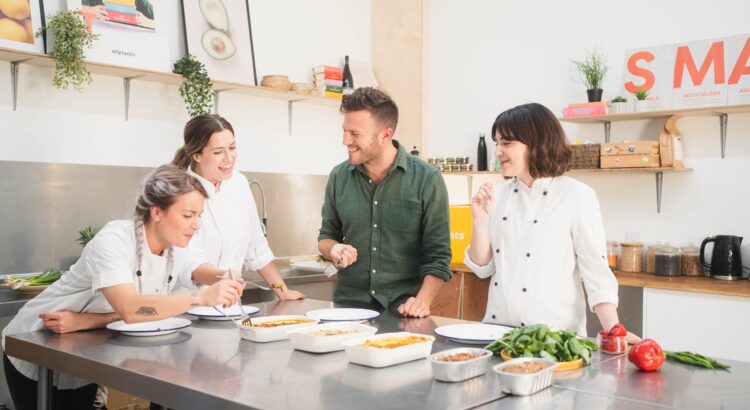

 He shares, “We started with the belief that someone had to make it exciting and easy for people to enjoy plant-based meals. All our dishes are freshly prepared in our plant-based kitchens, frozen and then delivered straight to people’s homes on a subscription basis to consume when they wish, which also helps reduce food waste. Initially we thought we were going to be the preserve of vegans, but in our first year over 60 per cent of our subscribers were non-vegan and non-vegetarian people keen for an easy and convenient way to eat healthier food which was kinder to the planet.”
He shares, “We started with the belief that someone had to make it exciting and easy for people to enjoy plant-based meals. All our dishes are freshly prepared in our plant-based kitchens, frozen and then delivered straight to people’s homes on a subscription basis to consume when they wish, which also helps reduce food waste. Initially we thought we were going to be the preserve of vegans, but in our first year over 60 per cent of our subscribers were non-vegan and non-vegetarian people keen for an easy and convenient way to eat healthier food which was kinder to the planet.”


 With India moving towards nutritious, chemical free food there are many existing food and nutrition companies and start-ups trying to make a difference with their innovative product profile. While this isn’t an exclusive plant-based event , the exhibitors at IFNIS2021 include start-ups and companies making ready to eat snacks, ready to cook food brands using healthy and natural ingredients, the new age dairy-free milk, manufacturers of ingredients used in vegan and plant-based food, technology providers, and even academic institutions.
With India moving towards nutritious, chemical free food there are many existing food and nutrition companies and start-ups trying to make a difference with their innovative product profile. While this isn’t an exclusive plant-based event , the exhibitors at IFNIS2021 include start-ups and companies making ready to eat snacks, ready to cook food brands using healthy and natural ingredients, the new age dairy-free milk, manufacturers of ingredients used in vegan and plant-based food, technology providers, and even academic institutions.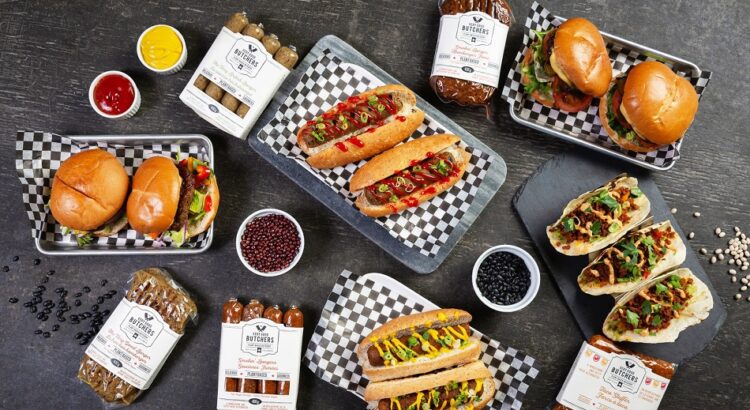
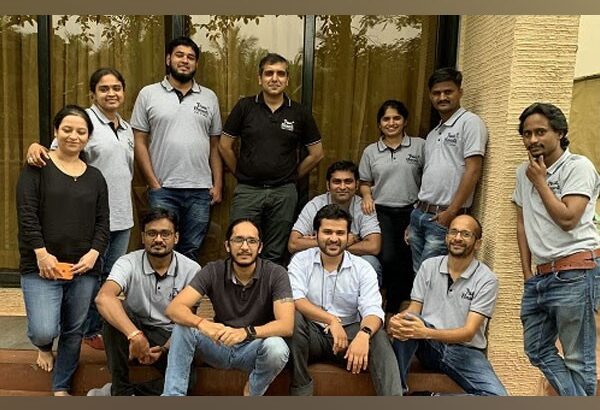
 Sreejith Moolayil, Co-founder & COO shares, “We are True Elements are proud that our commitment to quality promised in validated by scientific testing. While we strive to continuously improve with these international validations, our consumers can be sure that our products are clean and good for them.”
Sreejith Moolayil, Co-founder & COO shares, “We are True Elements are proud that our commitment to quality promised in validated by scientific testing. While we strive to continuously improve with these international validations, our consumers can be sure that our products are clean and good for them.”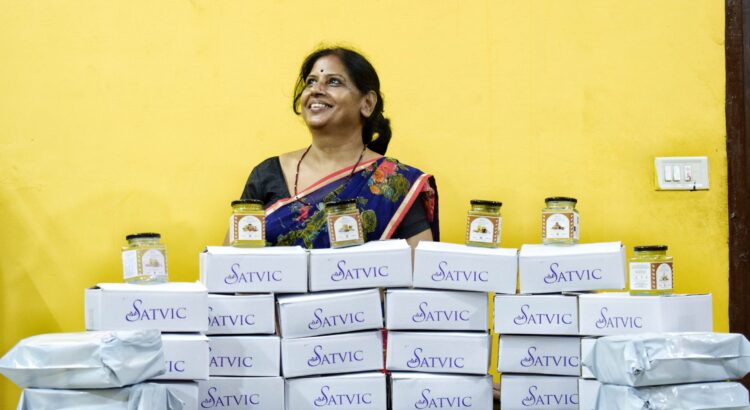

 Meanwhile her son fell ill, and doctors weren’t able to restore his condition. Her home remedies and kadas did their trick and her son Viraj regained his strength and health. This was when the mother-son duo knew they had a business idea on their hands - to make homemade masalas to be used for health, nutrition and flavour.
Meanwhile her son fell ill, and doctors weren’t able to restore his condition. Her home remedies and kadas did their trick and her son Viraj regained his strength and health. This was when the mother-son duo knew they had a business idea on their hands - to make homemade masalas to be used for health, nutrition and flavour.

 There are countries like India where cultured meat using animal cell is still taking baby steps. In the sub-continent, even though there are companies like ‘
There are countries like India where cultured meat using animal cell is still taking baby steps. In the sub-continent, even though there are companies like ‘